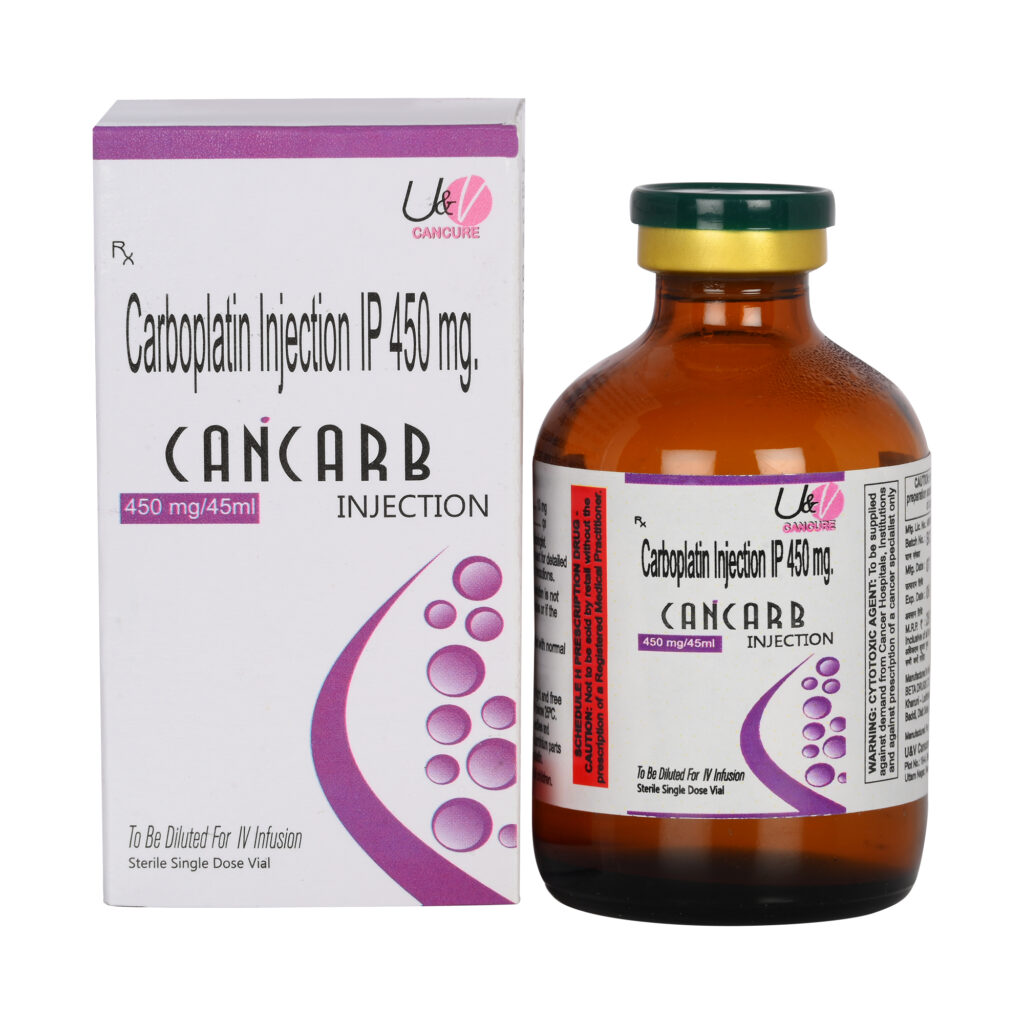
Phone Number
+91 99103-21199
Email Address
info1.unv@gmail.com
Our Location
Sector-10, Dwarka, Delhi

+91 99103-21199
info1.unv@gmail.com
Sector-10, Dwarka, Delhi

₹802.00 Original price was: ₹802.00.₹756.00Current price is: ₹756.00.
Carboplatin is a platinum-containing compound that exerts its antineoplastic effects by cross-linking DNA. It binds to DNA, forming adducts that result in the inhibition of DNA replication and transcription. This leads to cell death, particularly in rapidly dividing tumor cells. Carboplatin is a less nephrotoxic alternative to cisplatin but retains similar antitumor activity.
Common and serious adverse effects include:
U & V Cancure Private Limited was established in 2009 and is located in Delhi, India. Mr. Ashok Kaushik, the Director of the company has 20+ years of rich pharmaceutical experience. He has worked with various top oncology companies before launching his wholly owned company in 2009.
Fill in the form with your inquiry and we’ll connect with you on call

Copyright © 2024. All rights reserved.
Developed by Corporate Soldiers
